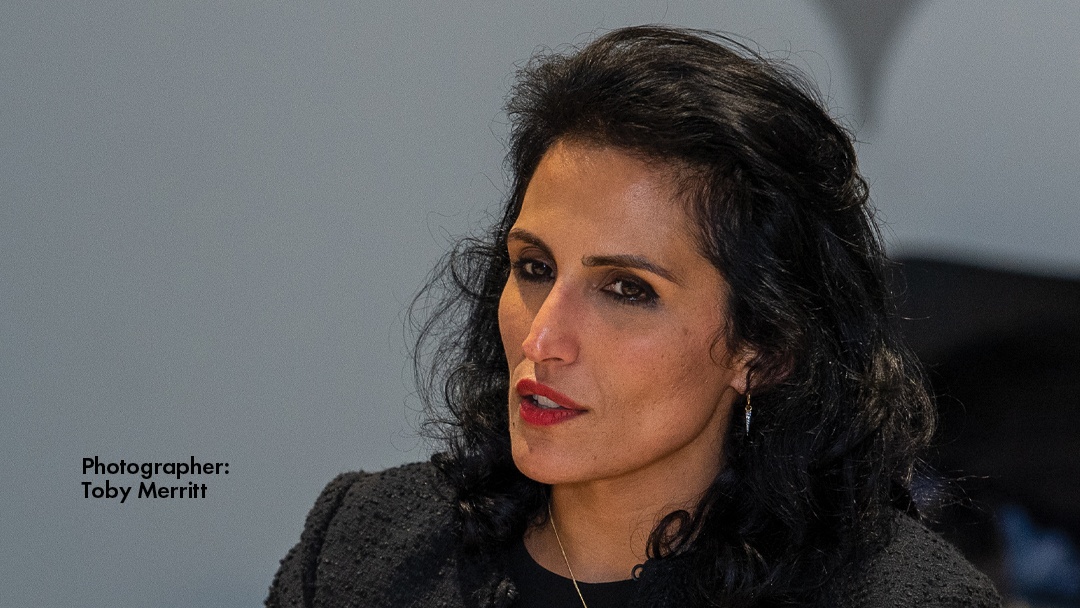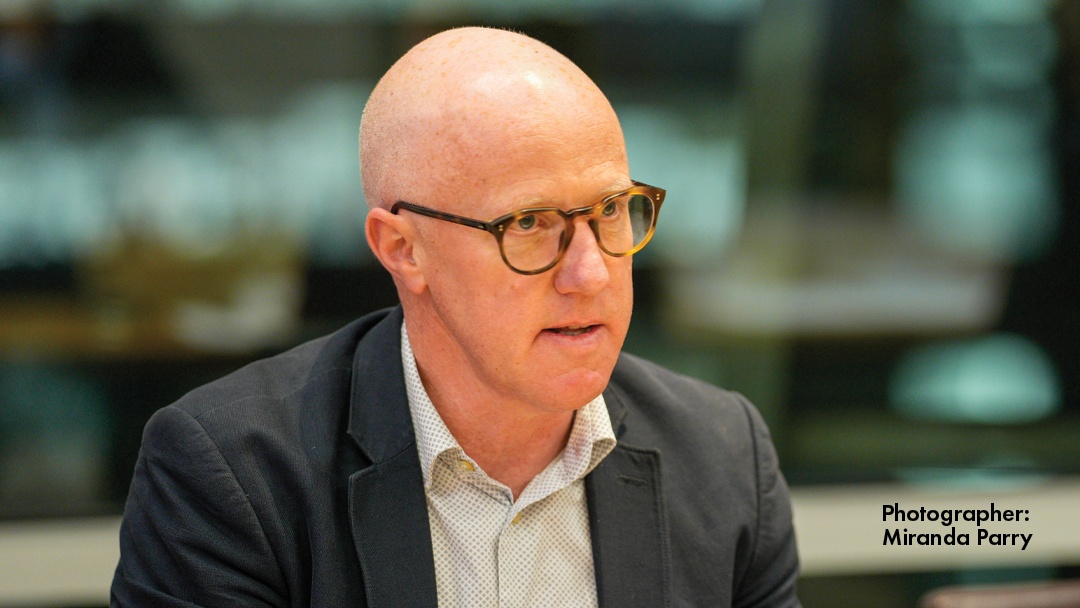Since the introduction of the European General Data Protection Regulation (GDPR), which went into effect in May 2018, there has been an increased interest in consumer data protection and privacy around the world. California was the first US state to take action, and enacted the California Consumer Privacy Act (‘CCPA’), a landmark legislation that was signed into law on 28 June 2018 and took effect on 1 January 2020. California subsequently the CCPA through the enactment of the California Privacy Rights Act (‘CPRA’) to amend the CCPA and further strengthen California’s data privacy protections. The CPRA took effect on 1 January 2023.
Continue reading “The status of data protection in the United States”
Data privacy and cybersecurity in India
Robust requirements to counteract cybersecurity incidents
Introduction
In the last few years, some of the biggest multinational companies (MNCs) have fallen victim to major cyberattacks affecting over a million individuals. While India does not have a dedicated law on cybersecurity at present, the applicable provisions on cybersecurity are somewhat fragmented under the umbrella legislation of Information Technology Act 2000 (IT Act), its rules and across other sectoral laws. Continue reading “Data privacy and cybersecurity in India”
Cybersecurity and data protection in Mexico
Mexico is considered as the 15th largest economy in the world1. Foreign direct investment in 2022 reached over $35bn, the highest since 20152. Even though the current public policies from the President Andres Manuel Lopez Obrador and its legal system has different windows of opportunity, Mexico is an attractive investment destination. Business in Mexico imply an enormous amount of data processing, specifically international data transfers, including millions of data subjects’ personal data. Those data mean an asset for criminals which has turned Mexico into an attractive target for illicit cyber activities. Cyberattacks are considered crimes under federal criminal law, and, depending on the characteristics of the attack, it may be also considered a menace to national security. According to the American Chamber, from the total of cyberattacks in Latin America in the period between 2021 and 2022, 66% targeted Mexico, which caused losses from $3bn to $5bn per year 3. In the first half of 2022, 85 billion cyberattacks were attempted in the country, an increase of 40% over the same period in 20214. Mexico had the region’s highest ransomware distribution activity in the first semester of 2022, with more than 18,000 detections5. Continue reading “Cybersecurity and data protection in Mexico”
What you need to know before exporting data from China
The Personal Information Protection Law of the PRC (the PIPL) provides three mechanisms to export data out of China, namely the data outbound security assessment (the security assessment), the personal information outbound transfer standard contract (the CN SCC), and the personal information outbound transfer security certification (the security certification). The first two are compulsory, and the last one is optional and voluntary. Continue reading “What you need to know before exporting data from China”
Taking an important case to trial
It’s the rare businessperson who wants to have an important issue or, worse, a company’s fate decided by a judge or jury. The vast majority of lawsuits are settled before it comes to that. But trial happens, sometimes with billions or hundreds of millions of dollars at stake. Continue reading “Taking an important case to trial”
Data protection in Sweden
Since 25 May 2018, the principal data protection legislation in the EU, and therefore in Sweden, is Regulation (EU) 2016/679 (the ‘General Data Protection Regulation’ or ‘GDPR’). Continue reading “Data protection in Sweden”
Legal tech: Assessing the leap from ‘shiny new objects’ to digital transformation
In late March, Goldman Sachs analysts predicted that generative AI applications such as ChatGPT risked ‘significant disruption’ to 300 million full-time jobs, with lawyers among the most exposed. Continue reading “Legal tech: Assessing the leap from ‘shiny new objects’ to digital transformation”
Enterprise GC 2023: Gen Z debate among show-stealers at flagship GC event
Unperturbed by the somewhat damp weather conditions, the great and the good of the in-house community flocked to Enterprise GC and Syon House in April to enjoy a variety of stimulating plenary sessions, workshops, keynote speeches and roundtables, not to mention a glittering gala dinner in the great conservatory. Continue reading “Enterprise GC 2023: Gen Z debate among show-stealers at flagship GC event”
Wrestling the bear – negotiating deals in the current market
Nathalie Tidman, Legal Business and The In-House Lawyer: Is it an oversimplification to say that inflationary pressure, if it eases, will kick-start M&A again?
Eric Knai, Eversheds Sutherland: We have been having a lot of discussions with our clients but also with investment bankers, bankers and economists. They say that inflation is a factor, but only one of a number of factors that impacts M&A. Continue reading “Wrestling the bear – negotiating deals in the current market”
Fighting talk
Litigation is increasing as ESG commitments and promises come under increasing scrutiny from activists, consumers and investors. It is a trajectory that will increase upwards, with the introduction of more ESG-related regulation and the proposed extension of the ‘failure to prevent’ remit.
In this roundtable, we asked some of the UK’s most prominent in-house lawyers to share their thoughts on trends in emerging legislation around ESG and examine how organisations can prepare for the further extension of ESG-related legislation. Continue reading “Fighting talk”
The Corporate diplomat: Debating the value of hard power vs soft power as a GC
Douglas Alexander, Pinsent Masons: I will first contextualise and attempt to define ‘soft power’ because, it is more often discussed than defined, and in that sense, I should probably declare an interest. In addition to many roles I hold, I have been a senior fellow at the Belfer Center in the Kennedy School of Government in Harvard over the last six years, and Joseph Nye, who coined the term ‘soft power’, has been a colleague of mine. Continue reading “The Corporate diplomat: Debating the value of hard power vs soft power as a GC”
Significant matters – Spring 2023
In-house course helps career-break lawyers re-enter profession
The Centre for Legal Leadership and Reignite Academy joined forces to run a one-day course for ‘career break’ lawyers seeking to re-enter the legal profession in an in-house role.
The course took place on 2 May in RPC’s office in London, and covered five different modules: the myths and expectations versus the reality of being an in-house lawyer; what it means to be commercial business partner; the breadths of topics an in-house lawyer has in their remit; the fundamentals of any commercial contract and how to make it work in practice.
The speakers at the event included Elaine Hutton, who moved from Clifford Chance to become GC at Channel 4 Television, Apple and most recently NTT Group’s cyber security division, and Luscinia Brown-Hovelt, who began her career as a corporate lawyer at Hogan Lovells before moving over to legal counsel in the retail and hospitality sector.
RPC’s head of commercial Jeremy Drew (pictured) said: ‘Moving in-house often requires a shift from being a specialist to a generalist – which can be daunting without the right support.
‘Attendees will benefit from learning from those who have made the transition and lawyers who for decades have worked with in-house lawyers in various sectors, at varying levels of seniority. This exposure, the workshops and time for one-on-one discussion will furnish attendees the insight and tools to move in-house, if that’s what’s right for them.’
One example is lawyer Vanessa Pringle, who began her career at Addleshaw Goddard where she spent over a decade but now serves in an in-house role at real estate investment company A.S.K partners.
Pringle said: ‘Lawyers, like everyone in the business, are encouraged and expected to think like entrepreneurial business owners which means the trajectory for your career is open, non-linear, and adaptive.’
Co-founder of the Reignite Academy, Lisa Unwin said: ‘The value of spending time with people who have walked a similar path to that you’re thinking of taking, is immeasurable. Post-event we expect attendees to have formed valuable connections which will see them not only make the right decision for their situation, but to be highly successful in making the transition.’
GCs ‘extremely concerned’ after SRA’s latest review of in-house sector
GCs are troubled by the Solicitor’s Regulation Authority’s lastest review of the in-house legal community, saying the regulator has understated the severity of risks faced by in-house lawyers.
The SRA surveyed more than 1,200 in-house lawyers to better understand their legal roles, focusing on how they support an ethical culture in their organisations, the challenges they face in meeting their professional obligations and how the regulator can help support them.
Former Lawtech UK director Jenifer Swallow shared a response to the review on LinkedIn, which at the time of going to press had been signed by more than 30 GCs, including Maaike de Bie, GC Powerlist regular and group GC of Vodafone group and Elizabeth Dyce, group GC at insuretech company Innovation Group Global.
While the GC response to SRA’s In-house Solicitors Thematic Review praises its focus on the in-house legal profession, the letter said the review understated the severity of the risks in an in-house environment and has produced inadequate conclusions.
‘It does not reflect the collective experience in-house or what was communicated by and to a number of us during the review, and it offers insufficient action and support in addressing concerns in the interests of stakeholders and society. The data gathered is useful, but the review’s conclusions are not supported by that data,’ the response said.
The GCs explicitly stated that they cannot agree with chief executive of the SRA Paul Philip on three main points: that the review findings are encouraging; regulatory risks identified in the in-house community are a minority issue; and that the risks relating to workloads and lack of training lead to poor decision making.
They urged the SRA to re-evaluate the tone and conclusions of the review urgently.
Swallow summarised several recommendations that GCs have proposed to the SRA, for example, instituting standards for in-house lawyer employment contracts; regulator outreach to employer-client boards; and detailed guidance materials and training for in-house lawyers on professional conflict.
They said the aim of the recommendations is to increase regulatory support for in-house lawyers without the only choice being to resign or reluctantly comply with professional and regulatory obligations.
A spokesperson for the SRA said: ‘We welcome all feedback on our thematic review. One of the key purposes of the report is to raise awareness of issues within the in-house sector, while highlighting both good practice and areas of concern. This report is very much a first step in our development of a range of bespoke resources to support the in-house community. We will continue to work with the in-house profession to help shape this.’
Five new firms appointed to Co-Op Bank panel
Five new firms have been appointed to provide legal services on The Co-Operative Bank’s second legal panel, following a formal review which began halfway through last year.
The legal panel will also comprise five reappointed firms, making up a team of 10 which will be in place until December 2025.
Addleshaw Goddard, Gateley, Hill Dickinson, Shoosmiths, and White & Case are the five new firms, while Clifford Chance, DLA Piper, Eversheds Sutherland, Hogan Lovells, and TLT have been selected to the panel for a second time.
However, six law firms from the 2015 panel have not made the cut this time, including Pinsent Masons, Allen & Overy and Mishcon de Reya. Other firms also not making a reappearance include Bates Wells, Matthew Arnold & Baldwin and Bryan Cave Leighton Paisner.
The Manchester-headquartered bank provides a wide range of services to approximately 2.7 million customers and 94,000 small and medium-sized businesses.
Commercial partner Luke Stubbs at Shoosmiths will lead his team, alongside banking and finance partner Liz Sweeney and restructuring partner Sarah Teal.
Stubbs said: ‘We submitted details of our expertise and capability and were delighted to be appointed by the bank along with a number of other leading firms.
‘Our aim is to help the bank deliver its long-term objectives and commitment to ethical, environmental and community matters – a shared vision that shapes our legal approach.’
Restructuring partner Tim Taylor will lead the Addleshaw team, supported by co-heads of the firm’s financial services sector Rosanna Bryant and Hugh Lauritsen.
Taylor said: ‘ Our team looks forward to bringing our technical expertise and sector experience to helping the bank deliver on its objectives and ambitions over the coming years.’
Moves that matter
- Shell has announced the promotion of its current general counsel Philippa Bounds to legal director from June. Bounds has been at Shell for almost two decades and will replace Donny Ching, who has spent more than 33 years with Shell but is now stepping down from this role after nine years. Prior to joining Shell’s in-house legal team in 2005, Bounds was an associate at Shearman & Sterling for seven years following a two-year stint at Simmons & Simmons.
- Switzerland-based luxury goods company Richemont has hired Thomas Loest from The Kraft Heinz Company as its global general counsel. Loest has held several in-house legal roles both London and elsewhere in Europe, including managing director and senior director at Nike and chief counsel for EMEA at US multinational personal care corporation Kimberly-Clark. He began his career in private practice at Hogan Lovells and Gleiss Lutz in Brussels.
- M&G has announced that GC Powerlist alumnus Charlotte Heiss will join as its new general counsel and company secretary in June. She is currently group general counsel and company secretary at The Very Group and will bring more than two decades of legal and governance experience to M&G. Prior to that she spent 11 years at RSA Insurance Group as group general counsel and company secretary. She started her career as a managing associate at Linklaters.
- Soft drinks manufacturer Suntory Beverage & Food has appointed Ewa Chappell as general counsel, where she will replace Mary Guest who has been promoted to deputy legal director. Chappell joins from premium drinks provider Diageo where she has spent seven years in several legal counsel-related roles. She joined the role in 2016 after a five-year run at Addleshaw Goddard where she trained as a solicitor.
- After 16 years as general counsel and chief corporate officer at Balfour Beatty, Chris Vaughan has moved over to Whitbread. He will serve as the new general counsel company secretary, replacing Simon Barratt who is retiring after 18 years. Vaughan has held senior legal positions at SABMiller and InterContinental Hotels Group (formerly known as Six Continents) and qualified as a solicitor at Freshfields Bruckhaus Deringer.
- Family-run shipping business James Fisher and Sons has appointed Jean-François Bauer as group general counsel. Bauer spent almost 30 years at US technology company Schlumberger, starting as an attorney in Paris before receiving several promotions, including his most recent post as general counsel of commercial and contracts in London. In 2021, he had a brief two-year stint away from Schlumberger, where he was executive director of his own company JFJC Consulting and interim group general counsel of oil and gas company KCA Deutag.







